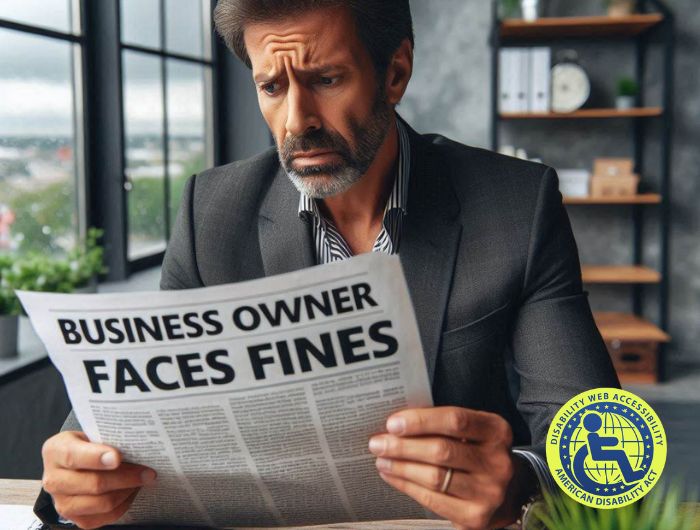The Hidden Costs of Ignorance: Fines and Legal Troubles for Non-Compliant Business Websites
In the digital era, having an accessible online presence is not just a competitive advantage but a legal necessity. Unfortunately, many business website owners remain unaware that their sites must comply with the Americans with Disabilities Act (ADA) and Web Content Accessibility Guidelines (WCAG). This ignorance can lead to severe financial penalties and legal consequences, tarnishing the business’s reputation and credibility.
Understanding ADA and WCAG Compliance
The ADA is a landmark civil rights law that ensures individuals with disabilities have equal access to all areas of public life, including the digital world. WCAG, developed by the World Wide Web Consortium (W3C), offers detailed guidelines to help make web content accessible to everyone, regardless of their disabilities.
The Legal Risks of Non-Compliance
1. Litigation
One of the most immediate risks of non-compliance is litigation. Businesses can be sued for failing to provide accessible websites, leading to costly settlements, attorney fees, and court costs.
2. Fines and Penalties
Regulatory agencies can impose substantial fines on businesses that do not adhere to ADA and WCAG standards. These fines can be especially damaging for small to medium-sized enterprises.
3. Damage to Reputation
News of non-compliance can quickly spread, damaging a company’s reputation. In an era where consumers prioritize social responsibility, failing to provide an accessible website can result in lost customers and negative publicity.
Real-World Consequences
Several high-profile cases have brought attention to the importance of web accessibility:
Domino’s Pizza
In 2019, Domino’s Pizza faced a lawsuit from a blind customer who could not use the company’s website and mobile app to order food. The Supreme Court ruled in favor of the plaintiff, highlighting the necessity of digital accessibility.
Beyoncé’s Parkwood Entertainment
In 2019, Beyoncé’s company was sued for having a website that was inaccessible to visually impaired users. The case drew significant media attention and underscored the need for accessible web design.
Winn-Dixie Stores
In 2017, a federal judge ruled that Winn-Dixie violated the ADA because its website was not accessible to blind users. This case set an important precedent for future web accessibility lawsuits.
Ignorance is Not a Defense
Claiming ignorance about ADA and WCAG compliance is not an acceptable defense in legal proceedings. It is essential for business owners to educate themselves on these requirements to avoid costly repercussions.
Steps to Ensure Compliance
Conduct an Accessibility Audit
Regularly audit your website using tools like ADA SUITE or manual testing methods to identify and address accessibility issues.
Implement WCAG Guidelines
Adopt WCAG guidelines to ensure your website meets accessibility standards. This includes adding alt text to images, ensuring proper color contrast, and making navigation accessible via keyboard.
Seek Professional Help
Hire accessibility experts or consultants who can guide you through the process of making your site compliant.
Ongoing Monitoring
Accessibility is not a one-time task. Continuously monitor your site for compliance, particularly when adding new content or features.
Educate Your Team
Ensure that everyone involved in website development understands the importance of accessibility and is trained in best practices.
Conclusion
Ignoring ADA and WCAG compliance can result in severe financial penalties and legal issues for business website owners. Beyond the immediate legal repercussions, failing to provide an accessible website can damage a brand’s reputation and alienate potential customers.
By taking proactive steps to ensure your site is accessible, you not only protect your business from costly fines but also demonstrate a commitment to inclusivity and social responsibility. Don’t let ignorance be an excuse—educate yourself and take action today to make sure your website is ADA and WCAG compliant.
 English
English 

